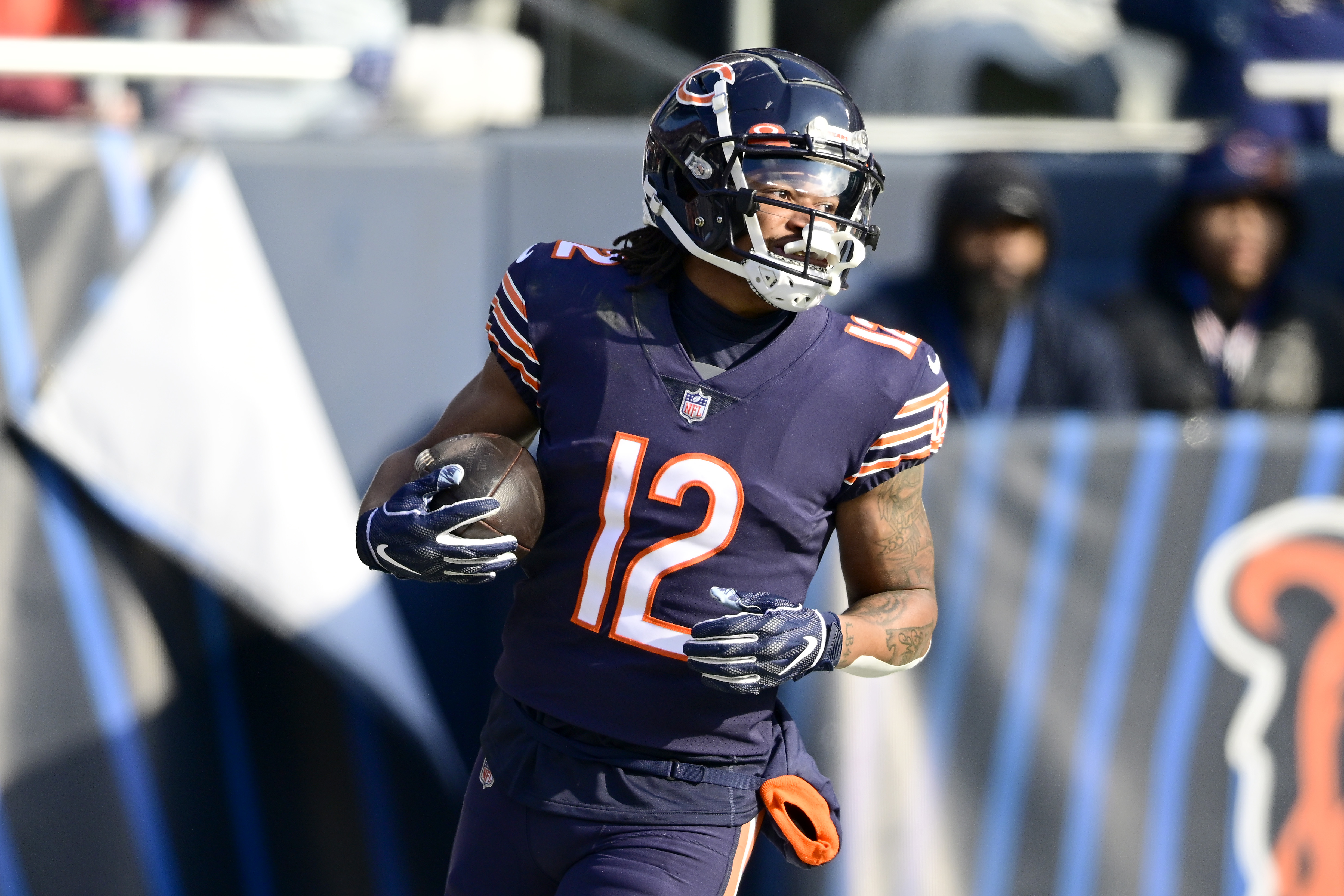The Bears have a good defense. Not great. Good.
And if this defense is actually going to be great, it first needs to start playing with a lead. A lot more.
Only 29 percent of the Bears’ defensive plays have been with a lead in 2020. But 57 percent of Pagano’s defensive calls have come with the Bears losing – so far, easily the highest rate in the last four years.
Stay in the game with the latest updates on your beloved Chicago sports teams! Sign up here for our All Access Daily newsletter.
The year-by-year breakdown:
2020: 29 percent leading, 14 percent tied, 57 percent trailing
2019: 42 percent leading, 18 percent tied, 40 percent trailing
2018: 70 percent leading, 16 percent tied, 14 percent trailing
NFL
2017: 36 percent leading, 21 percent tied, 43 percent trailing
This is sort of a chicken-or-the-egg question: Does having an aggressive defense result in playing with the lead more, or does playing with the lead more result in having an aggressive defense?
Of the 13 interceptions this defense has since Pagano took over, all but one have come with the Bears either leading or tied. That makes sense, since teams that are playing from behind have to take more risks. But those risks, in turn, allow the Bears’ defense to be more aggressive going for the ball.
And, since the start of the 2019 season, 26 of the Bears’ 40 sacks have come with a lead or in a tie game. Again, same deal: Teams have to pass more when they're behind, and the more teams pass, the more opportunities Khalil Mack and Akiem Hicks have to wreck a pocket and bring down a quarterback.
If this feels like a generous reading of how the Bears’ defense has played this year – again: Good, not great – it’s because it is. But it doesn't cover for some of the self-inflicted issues this defense has.
Robert Quinn got a sack on his first play in a Bears uniform and hasn't done much since. The run defense is just okay without Eddie Goldman.
And while playing from behind might change how Pagano calls the defense, it shouldn’t change the mindset of a group that aspires for the kind of greatness it achieved in 2018.
“At the end of the day, if they don't score, they don't win,” inside linebacker Roquan Smith said after the Bears’ 19-11 loss to the Colts. “So when you live with that mindset, at the end of the day, they got too many points on us.”
But this defense is also doing a lot of things well that don't have anything to do with the score. They're third in the NFL in preventing third down conversions (34 percent) and no team has done a better job keeping opposing offenses out of the end zone when they get in the red zone than the Bears (38 percent).
And eventually, these playing-from-behind numbers will stabilize and the Bears will wind up with more snaps on defense either tied or with the lead than while losing. Even while going 3-13 in 2016, the Bears played with a lead or with a tie score on 53 percent of their defensive snaps.
So that’s the good news. The bad news is it doesn’t seem especially likely Thursday night’s date with the Tampa Bay Buccaneers will result in the Bears’ defense playing with a lead all that much.
Sure, the Buccaneers might be without some, or all, of their four top wide receivers (Mike Evans, Chris Godwin, Scotty Miller and Justin Watson did not practice Tuesday). Tight end O.J. Howard suffered a season-ending Achilles injury a few days ago. Running backs Leonard Fournette and LeSean McCoy also didn’t practice on Tuesday.
Some of those guys will probably play Thursday night. But the Buccaneers, more importantly, have Tom Brady and a great offensive line. They’re averaging 30 points per game – which, in a sign of the times, is good for only eighth in the NFL, but is nine points more than the Bears are averaging this year.
“(Brady) does a great job of getting you to show your hand,” defensive coordinator Chuck Pagano said. “He knows exactly where to go with the football. He's still got the arm talent to make all the throws and makes great decisions and stands in there, sits in there. It's a huge challenge.”
Thursday night’s tilt is not a game where it feels particularly likely the Bears will score on defense – which, of course, is one way to stop playing from behind and start playing with a lead. But the Bears’ defense needs much, much more help from its offense.
And the Buccaneers, as it so happens, have a great defense (No. 2 in DVOA, right behind the No. 1 Colts). That's pretty tough sledding for Nick Foles to make his first two starts with the Bears.
There are, of course, things the Bears’ defense can do better regardless of the score. And they didn’t play particularly well with a lead in the second half of Week 2’s game against the New York Giants, almost allowing one of the worst teams in the league to win at the last second.
But as long as the Bears’ offense struggles to mount anything beyond furious fourth quarter comebacks, I’m going to reserve a little bit of judgement for this defense.


